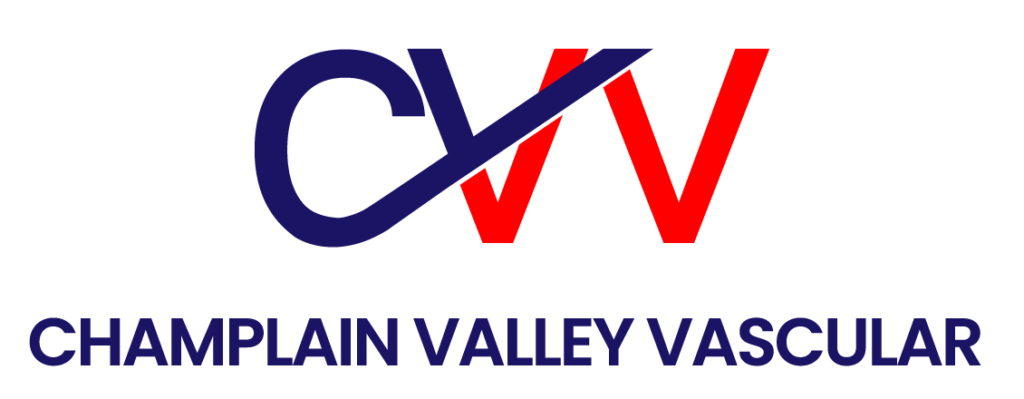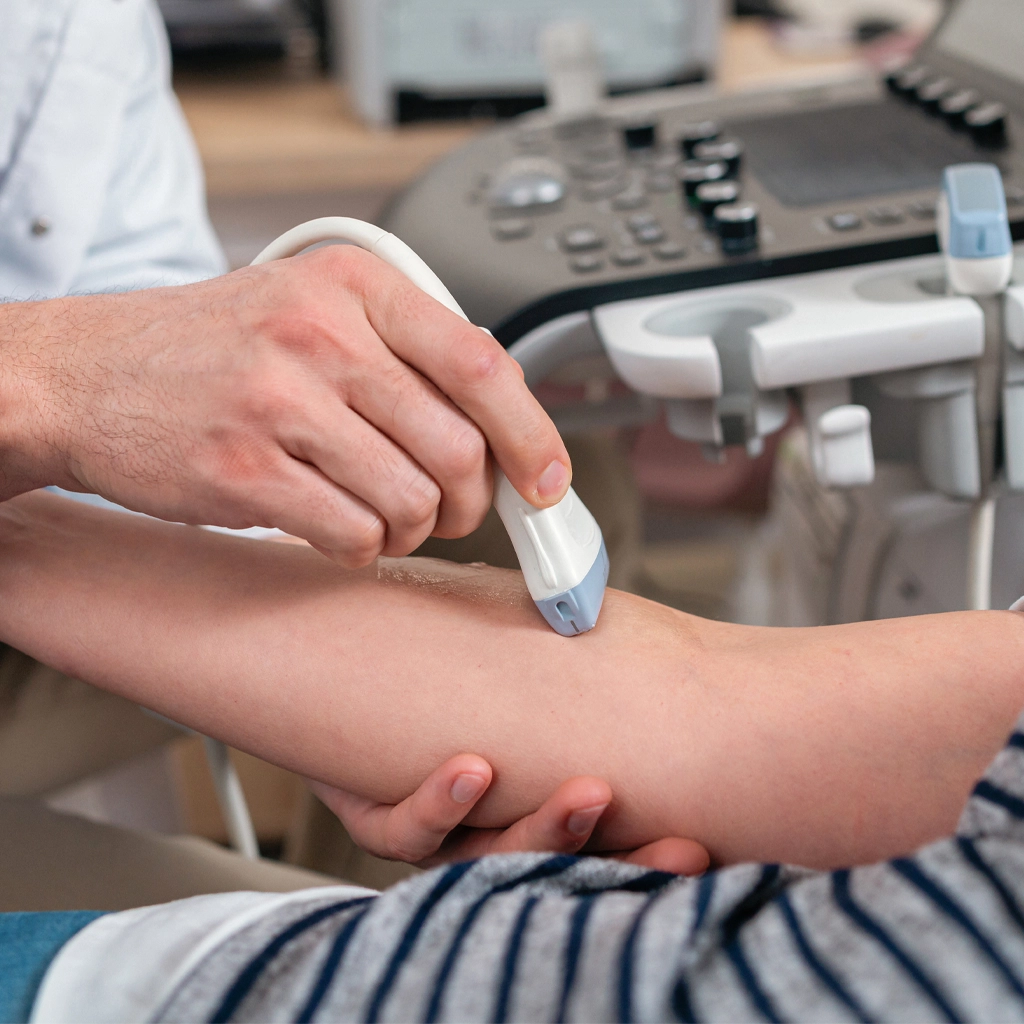Vascular Testing at Champlain Valley Vascular
Vascular testing is an integral part of the vascular care team. The testing compliments the clinical exam and provides additional information for the vascular surgeon.
Champlain Valley Vascular uses duplex ultrasound and doppler testing to assess blood flow in arteries and veins. Both modalities are radiation free with no known side effects, and use high frequency sound waves to image and measure blood flow through the vessels. Most exams take 30-40 minutes, and only require preparation for abdominal imaging, which consists of 8-12 hours of fasting.
Arterial Doppler testing involves measuring the blood pressure at different levels in your legs. You maybe be asked to remove pants, shoes and socks for the testing, and different size blood pressure cuffs will be wrapped around your ankles, calves and thighs. A small, ultrasound transducer is held against the skin to hear the blood flow, and the cuffs are inflated individually to obtain blood pressures.
Duplex imaging is an ultrasound machine that is able to image the blood vessels as well as measure the blood flow through them. A water based gel is applied directly to the skin and a transducer is held against the gel and the image is created on the screen.
Vascular imaging is used to look for blood clots, blockages or restrictions of flow in arteries, and measurement of aneurysms. It can also be used to assess varicose veins and to map vein size for dialysis access creation. Ultrasound exams performed at Champlain Valley Vascular include Carotid Duplex, Venous and Arterial studies of the extremities, Renal, Mesenteric and Aortic duplex.
Vascular exams are typically performed by a registered vascular technologist who will obtain the imaging, compile the data and submit it to the vascular surgeon, who will then review and interpret the study and dictate a report.

